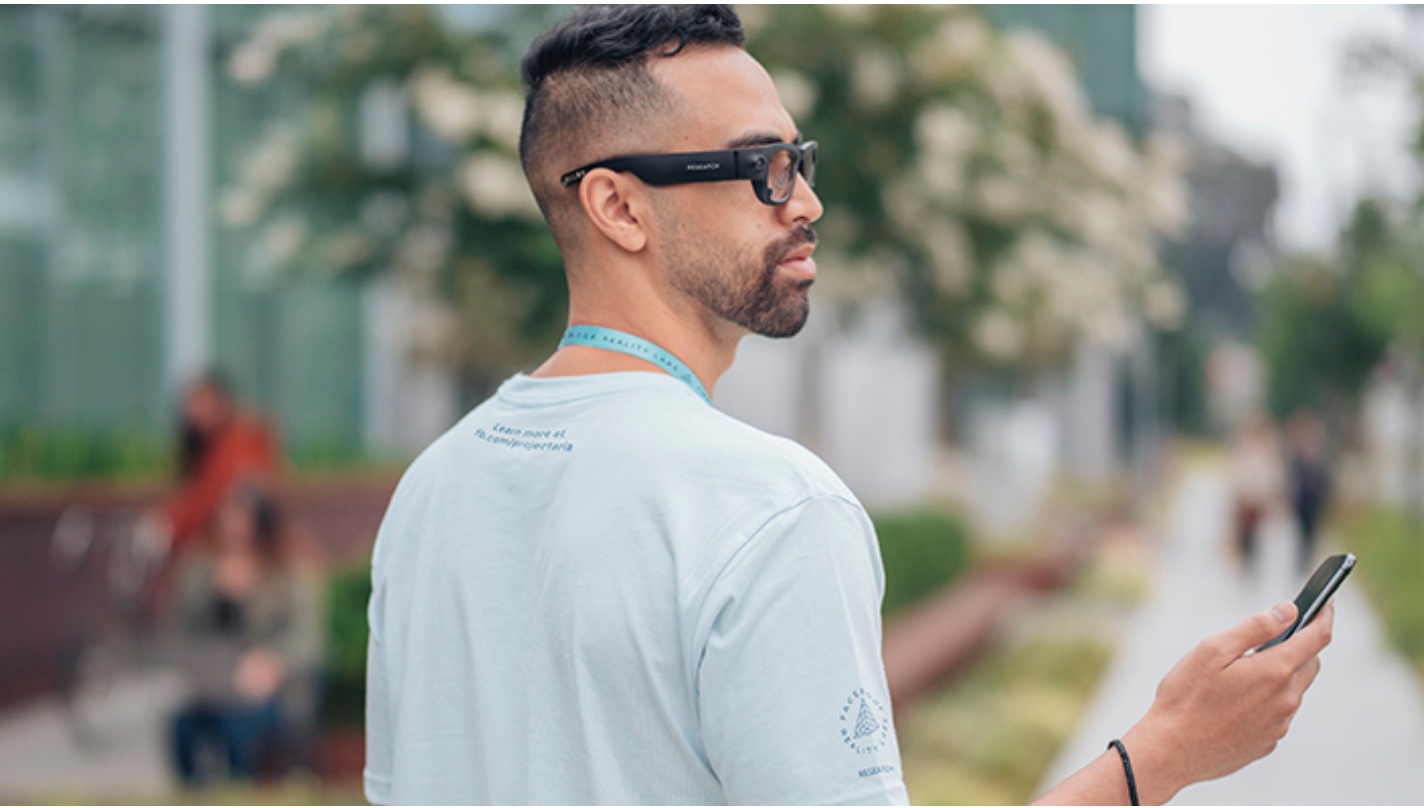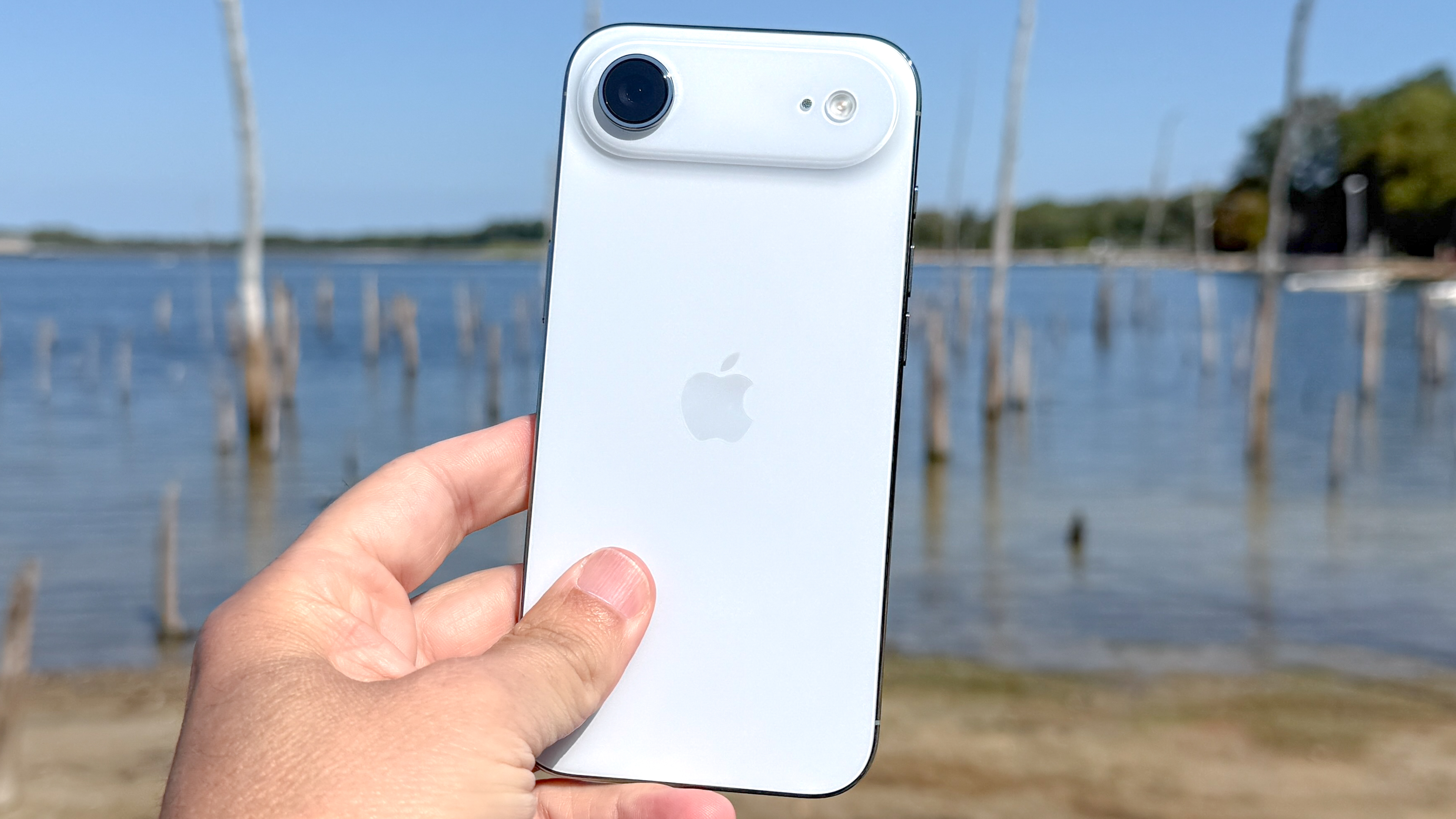Facebook smart glasses could have facial recognition — here’s why that’s a terrible idea
Facebook has made bad decisions, but adding facial recognition to its smart glasses would beat them all

We’ve already heard news that Facebook is developing smart glasses, even if the earliest models don’t have any sort of AR or mixed reality features. But apparently, they may come with facial recognition cameras.
Facebook is reportedly weighing up the legal implications of adding facial recognition to its smart glasses. My advice? Don’t bother, because the last thing the world needs are glasses with built-in facial recognition. Let alone facial recognition powered by Facebook.
- Everything you need to know about Apple Glasses
- Oculus Quest 2 review: The best entry points into VR yet
- Plus: Oculus Quest 2 brings 'Hey Facebook' command as experimental feature
According to Buzzfeed News, Andrew Bosworth, Facebook’s head of AR and VR, said as much in an internal meeting last week, when an employee asked whether it would be possible to “mark their faces as unsearchable” when smart glasses become more commonplace.
Bosworth said that "Face recognition ... might be the thorniest issue, where the benefits are so clear, and the risks are so clear, and we don’t know where to balance those things.”
Notice how he didn’t actually answer the question? Yeah, I noticed too.
Bosworth emphasized that nothing’s been decided yet and that laws in U.S. may well prevent it. As to why a pair of glasses would need Facebook recognition, one use case is apparently to search for other peoples’ profiles using a scan of their face.
The more I hear, the more I’m convinced that this is an atrocious idea. The employee who asked this question in the first place highlighted fears about “real-world harm” including risks from stalkers. And they have a point. But that’s the least of the problems involved.
Get instant access to breaking news, the hottest reviews, great deals and helpful tips.
Bosworth has since taken to Twitter to clarify some points, and emphasize that Facebook hasn’t made any decisions yet. More to the point, the company won’t be making any decisions until there’s a “very public discussion about the pros and cons.”
We’ve been open about our efforts to build AR glasses and are still in the early stages. Face recognition is a hugely controversial topic and for good reason and I was speaking about was how we are going to have to have a very public discussion about the pros and cons. (1/2) https://t.co/PFNSoBpcniFebruary 25, 2021
Maybe it’s just me, but I have a hard time thinking of any positive things that could come from handing facial recognition glasses to any random person that wants them. Let alone positives that could outweigh the enormous negative implications.
But Bosworth did say that such facial recognition in smart glasses could help the wearer recognize someone who's name they may have forgotten. Or it could help face blind people, who can't identify the faces of people they know despite being able to see clearly. These feel like rather niche benefits to me.
Facial recognition is already problematic
Facial recognition has already been a very controversial topic, especially when it comes to the issue of law enforcement. There have been cases of innocent people being arrested after being incorrectly flagged by facial recognition systems.
In addition, a 2019 federal study found that there was racial bias in facial recognition systems. Asian and African-American faces were 10 to 100 times more likely to be falsely identified compared to White faces.
And big tech is no stranger to racial bias. Facebook itself has formed teams to figure out whether its algorithms and AI tech are adversely affecting Black, Hispanic, and other underrepresented groups.
I could foresee there being law-enforcement-specific versions of these glasses at some point in the future. There could be smart glasses that connect to police databases, and claim to help cops identify suspects and solve crimes.
But seeing as how inaccurate facial recognition has already proven to be, and the legal challenges of its use, such a situation would only make a serious problem even worse.
The question is why would Facebook invest in a consumer take on tech that thus far has proven unreliable?
You could argue that rolling it out to the public will lead to a lot more people using it in real-world conditions. That data can then be collected to help the technology improve, essentially turning the early adopters into human guinea pigs.
But the problems run far deeper than issues with race and accuracy.
Fascial recognition is already a privacy and safety nightmare
Facial recognition glasses also bring up the issue of privacy. It’s a serious problem because companies, in this case Facebook, is potentially giving random people the ability to identify whomever they pass on the street.
Filming a person in the street without their consent is bad enough. But being in the background of someone’s Instagram story is a totally different situation to someone being able to scan your face and learn your identity. Especially if the smart glasses can be used to identify your personal Facebook account, and whatever details that contains — particularly if the privacy settings aren't fully enabled.
Facebook’s own employee brought up the issue of stalking, and that's key to this argument. Having a device that is actively able to identify random people on the street opens up a Pandora's Box of serious issues.
Stalkers can help keep tabs on their victims, or potentially find new ones — all because their glasses found a face, and led them straight to that unsuspecting person’s Facebook profile.
Smart glasses with facial recognition could also cause similar issues for people who are fleeing abusive partners or relatives, are in witness protection and even sex workers or anyone else whose occupation prevents them from using their real name.
Frankly, all the pros Facebook can come up with to justify adding facial recognition don’t matter for this very reason. As soon as you develop a product that could endanger the lives and wellbeing of other people, that product should be locked away and never, ever, released to the public.
Do you actually trust Facebook with that data?
Even if you were okay with glasses that could recognize your face, this is Facebook we’re talking about. The same Facebook that tracks users across the web, criticizes attempts by other companies to ensure user privacy, and whose apps look absolutely terrifying when you break down just how much data they collect.
At the moment. Facebook’s system is only able to track you online, or your location history if you have the company’s app installed on your phone. In other words, it’s pretty easy to avoid. Should the company arm users with facial recognition glasses, they’ll be able to keep better tabs on people in the real world. If Facebook can tie your face to a profile, then it might be able to see who you are and where you’ve been, all thanks to some dude wearing its glasses.
I would personally be against any company having a product that can do this, and certainly not Facebook. The company’s cavalier attitude to user privacy rubs me the wrong way. Especially after the Cambridge Analytica scandal.
Nobody should be adding facial recognition cameras to portable devices, especially not glasses. Facebook, especially, should stay well away. Because I believe that it can’t be trusted with that information, and I know I’m not the only one.

Tom is the Tom's Guide's UK Phones Editor, tackling the latest smartphone news and vocally expressing his opinions about upcoming features or changes. It's long way from his days as editor of Gizmodo UK, when pretty much everything was on the table. He’s usually found trying to squeeze another giant Lego set onto the shelf, draining very large cups of coffee, or complaining about how terrible his Smart TV is.
 Club Benefits
Club Benefits





